When Brett and Noelle Hersom adopt a 9-year-old with a history of abuse and neglect, they soon realize that given the right combination of love, commitment, patience and flexibility, every child has the potential to heal.
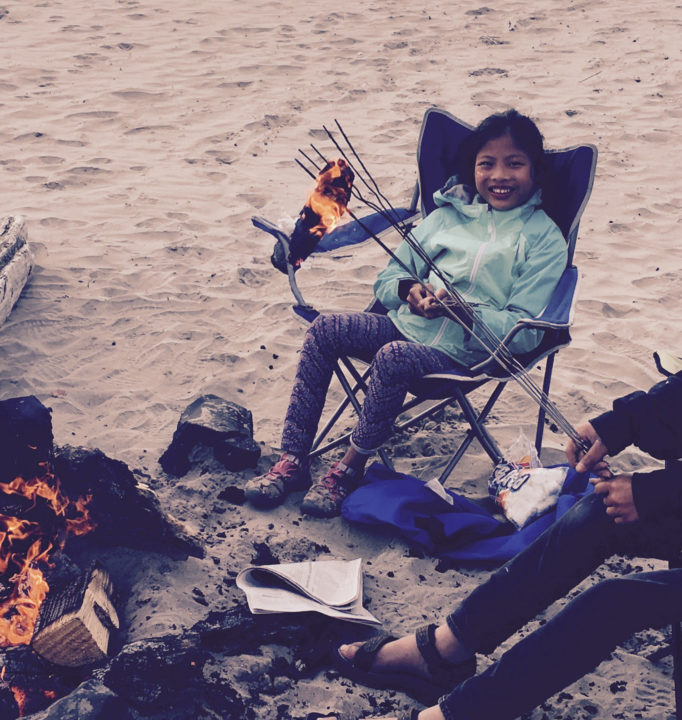
At one point in her first year home, 9-year-old Vienna threw a tantrum so severe, so next level, that her mom, Noelle, made a decision that few parents would make. She didn’t walk away, like she wanted to. She didn’t leave the room and let Vienna work through it. She knew this would be a long one, and she wasn’t about to leave her daughter’s side. So she got a book, and settled in.
“The point was to be there with her and not walk away,” Noelle says.
Marissa Robello, Noelle’s social worker, had prepared Noelle for moments like this. Vienna had spent her entire childhood in an orphanage. She had never had a parent like Noelle to model appropriate behavior or teach her how to communicate her needs. She threw tantrums now because she never had the chance to have one at the age kids typically do. No one would tolerate that in an orphanage. She had learned to survive by being a people pleaser. By suppressing her emotions.
But now that she finally had what every child needs and deserves — a loving, devoted parent who would not leave her even in the middle of the most severe outburst — her emotions came out something fierce.
Marissa didn’t just prepare Noelle for how to respond to it. She also taught her how to see it. Although difficult to witness, Vienna’s tantrum was, in fact, a sign of progress.
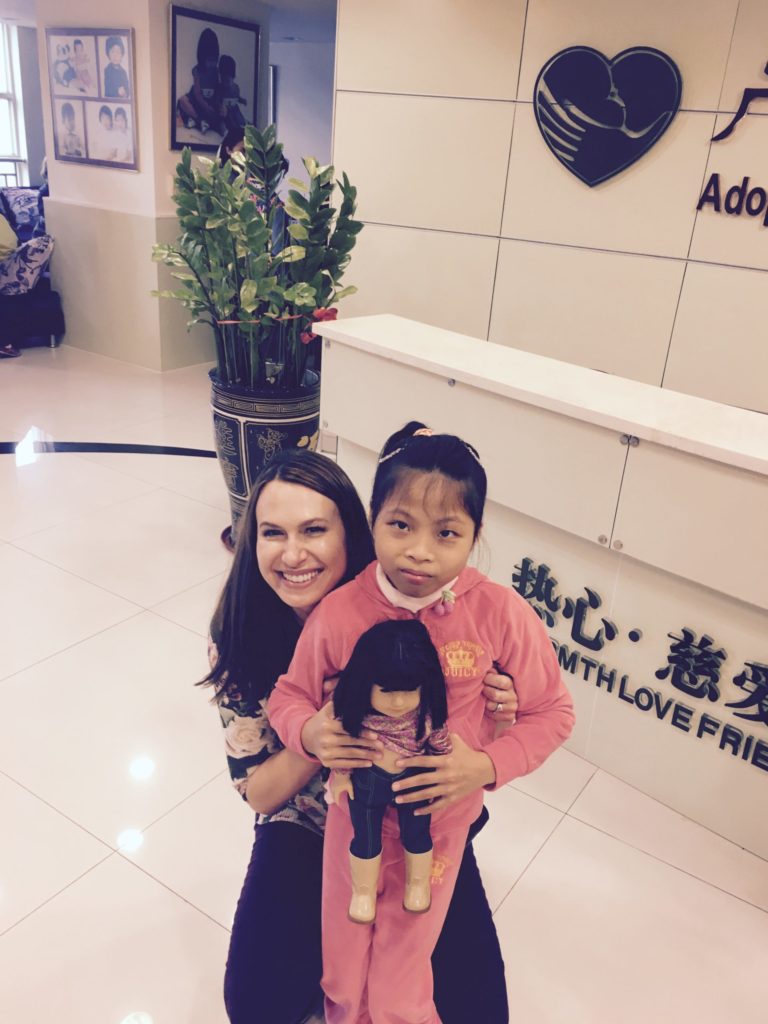
“Sometimes when a child is having a tantrum, they’re showing you that they feel safe enough to let out these big emotions they’ve been holding in,” Marissa says. “For a child who has needed to be quiet and compliant to survive, being able to have a voice for the first time with a calm adult by their side — that’s the path to healing.”
Instead of walking away or scolding her or trying to correct her behavior in the moment, Noelle made it clear to Vienna that she could take the time she needed to express all of her pent-up emotions. Just by being there with her, and giving her the warm, nurturing support that she lacked all her life, Noelle validated Vienna’s feelings — that it was okay to feel scared, frustrated or confused in this strange new home. It was okay to grieve not just the lost years of her childhood spent in an orphanage, but also the losses that every internationally adopted child experiences — loss of culture, and of caregivers, and at a more fundamental level, of the birth family she never knew.
But Vienna had endured more in her life than most children, even most adopted children. Her trauma scaled on a level that few families feel equipped to handle.
“I had no idea the depth or frequency of [her abuse]. It’s kind of everything you don’t want to hear that your child’s been through.”
Noelle Hersom, adoptive mother
She slept on the floor for 9 years. She never went to school. She never learned how to read. She had cerebral palsy and couldn’t walk because she never received the proper therapies. She had never even seen herself in the mirror, or taken a hot shower. Worst of all, and hardest for Noelle to hear about, was the abuse that she endured at the hands of people who were supposed to take care of her.
Like most adopted children, Vienna’s history of abuse only came out after she came home — and only when she felt safe enough to share it with her parents.
“I had no idea the depth or frequency of it,” Noelle says. “It’s kind of everything you don’t want to hear that your child’s been through.”
For children who’ve experienced trauma, how bad and how often it happened influences how significant the impact will be on them. “It’s the frequency, the duration, the severity, and also whether there were any protective factors in place to help the child through the trauma,” says Marissa. “Older children with more ruptured relationships, more people who have hurt or failed them, have longer-held behavior patterns that are difficult to come out of without support and new coping strategies.”
Often, children with difficult histories and no consistent attachment figures — parents or caregivers — in their lives have fear responses that are off-the-charts high. They are constantly in fight-or-flight mode, which, Marissa explains, is a “primitive response — a way of existing when we need to keep ourselves alive and safe.”
But, she also emphasizes, children with difficult histories can successfully come out of the constant survival mode in which they have so long existed. “There are so many kids who have been through horrible, horrible things and are thriving,” she says, “because they’re with the right support system.”
They just need that devoted parent or parents who will help them find a new way to exist. A parent who will sit with them through the most intense, next-level tantrum, and love them no matter what.
For Vienna, that person was Noelle Hersom.
A Love They Wanted to Give
Like many adoptive parents, Noelle felt an instant connection with Vienna the first time she saw her face on Holt’s waiting child photolisting.
“I knew she was the one,” she says. “There was no question.”
Also like many adoptive parents, Noelle and her husband, Brett, began the adoption process with a much younger child in mind. They were first-time parents, and planned to adopt a baby.
But Noelle felt so drawn to Vienna that the more she read about her, the more she remapped in her mind what motherhood would look like for her. Even after she learned that Vienna could not walk or read. Even after one particularly hard-nosed social worker told her that Vienna might never look at her as a parent — that she will always view her as a caregiver, and not a mom.
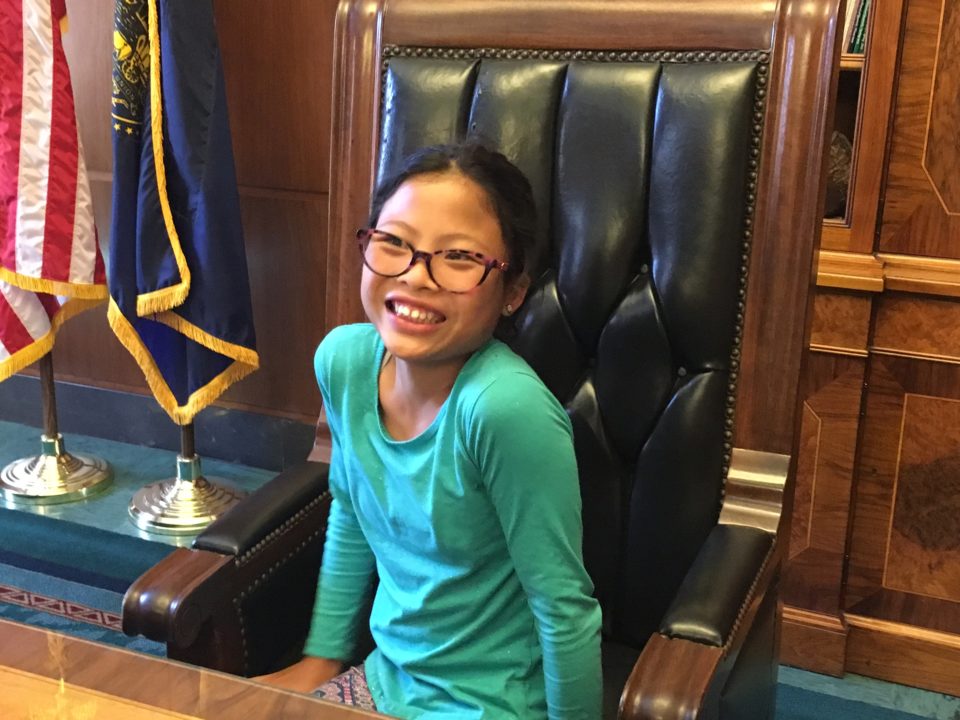
“I knew I could love her anyway,” Noelle says, thinking back. “It was a love I wanted to give, and it made me more confident about the decision I made.”
As anyone who has gone through the adoption process knows, however, a decision as life-changing as adoption is not quite so straightforward. Every prospective parent goes through a rigorous process to determine if they are best suited to parent a particular child. They complete a thorough homestudy, and go through intensive training to ensure they are prepared for the unique challenges of parenting an adopted child. Adopting an older child with a difficult history, however, adds a whole other layer of complexity that Brett and Noelle needed to be prepared — and equipped — to manage.
“We look for certain qualities in families adopting a child with an especially difficult history,” Marissa says. She looks at their willingness to learn — not just about trauma-informed parenting, but about themselves as individuals. She looks at whether they have space in their lives and their hearts, whether they have a good system of support, access to medical and therapeutic resources, whether there are other family members in the home who have experienced trauma and haven’t fully worked through it. She looks for a mindset of openness, flexibility and realistic expectations.
Often, social workers also seek families with experience parenting past a child’s age and experience with adoption. As first-time parents, Noelle and Brett had no experience in either category. But they had every other quality in abundance, including a stable, loving, open and honest relationship with each other that would give them the strength to endure a potentially tough transition and attachment process with Vienna.
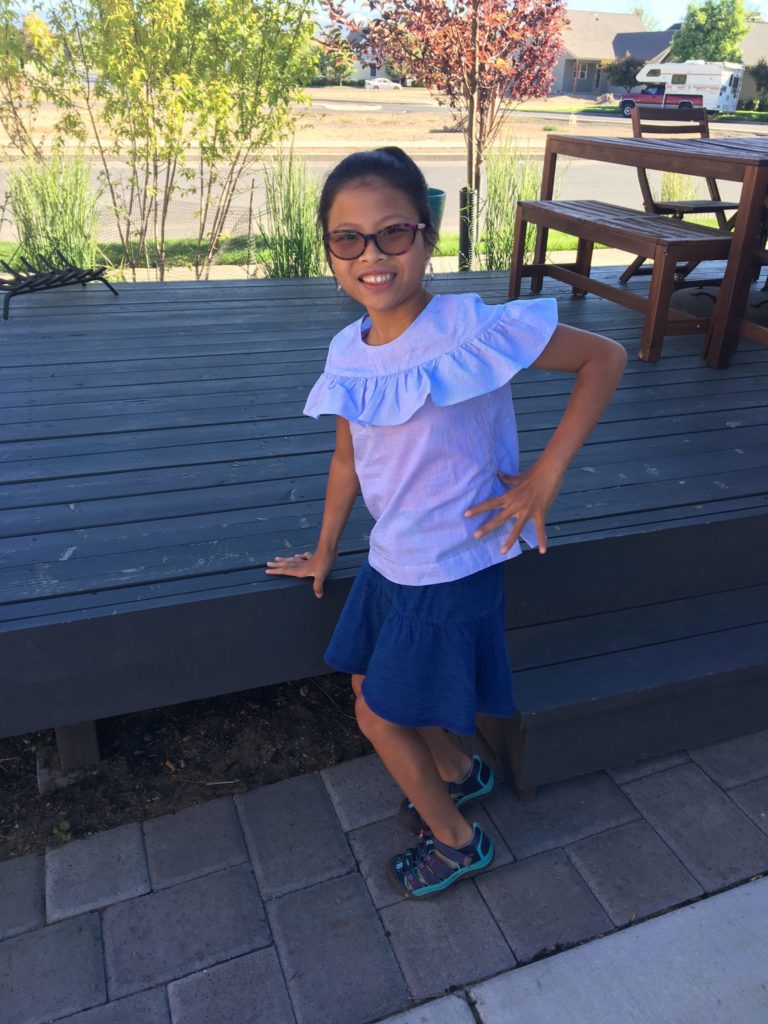
Among prospective parents, sometimes it’s one parent who is pushing for the adoption, Marissa says. But for a child with a difficult history, both parents need to be actively involved.
“When I’m making a decision about a child being placed with a family, I look at the cohesiveness of the marital relationship,” Marissa says. “In two-parent households, both parents need to be physically and emotionally available.” With Brett and Noelle, they both traveled for work, but planned to stagger their schedule so one parent would always be home. They would share parenting evenly, which would make any stress or turmoil easier to manage.
Noelle’s response to hearing that Vienna may never see her as a mom also reinforces why she was a good fit for a 9-year-old with a tough background.
Today, Marissa says that rather than preparing prospective parents for the possibility that their child may never attach to them, social workers talk more about behaviors that children with difficult histories may exhibit, as well as the reasons behind them. They talk about how to help children learn to connect, to express themselves, and to learn new patterns of behavior and communication. They explain that attachment is not the sole responsibility of the child, but rather a “dance” between the child and parent that they mutually develop over time.
There were hard moments. There were tantrums. But just as they’d learned, Brett and Noelle viewed these moments as opportunities to strengthen their bond with Vienna.
But for parents who have had a child by birth before, Marissa says social workers are always careful to emphasize that attachment with an adopted child will look very different than with a newborn baby who never experienced separation or loss. And for parents considering an older child, they don’t sugarcoat the fact that their relationship may take years to build.
“It takes time to get to know each other, and to learn how to be in a relationship together,” Marissa says.
Noelle held no romantic notions of an instant mother-child bond, and that’s what made her in many ways the ideal parent for an older child like Vienna. Whether or not Vienna ever reciprocated Noelle’s love, Noelle was committed. And she could do that, Marissa says, because she was getting her emotional needs met by the supportive relationships she already had in her life. She had enough emotional space to give Vienna what she needed to heal.
For Noelle, it felt like a gift.
“For someone to never experience love or be safe or have the right amount of food or basic necessities and be able to give that to them freely and not expect anything in return, I was okay with that because I have all of these other amazing relationships in my life,” Noelle says. “It didn’t feel like a sacrifice. It felt like a gift.”
Holding Her Hand Through the Healing
By the time Noelle and Brett traveled to China to bring home Vienna, they had prepared themselves for just about anything. They had completed training on Trust-Based Relational Intervention, or TBRI®, a parenting skills program designed especially for parents of children with difficult histories. They had read books on attachment, and learned how the brain develops differently when a child experiences trauma.
“It might be enough to scare some people away, but not me,” says Noelle.
Ready to put all that preparation into action, Noelle and Brett did exactly what they had planned. They gave Vienna all the love and attention she had missed the first nine years of her life — “regardless,” Noelle says, “of whether she was going to give it back or not.”
At first, Vienna clung to Noelle and had a harder time connecting to Brett, and she seemed fearful of others. But with medical care and nourishing meals, she began to physically feel better. She began to heal, and to catch up, and to feel safe in her new environment. Every so often, Marissa would check in and offer advice and reassurance — pointing out the progress that they had made.
There were hard moments. There were tantrums. But just as they’d learned, Brett and Noelle viewed these moments as opportunities to strengthen their bond with Vienna.
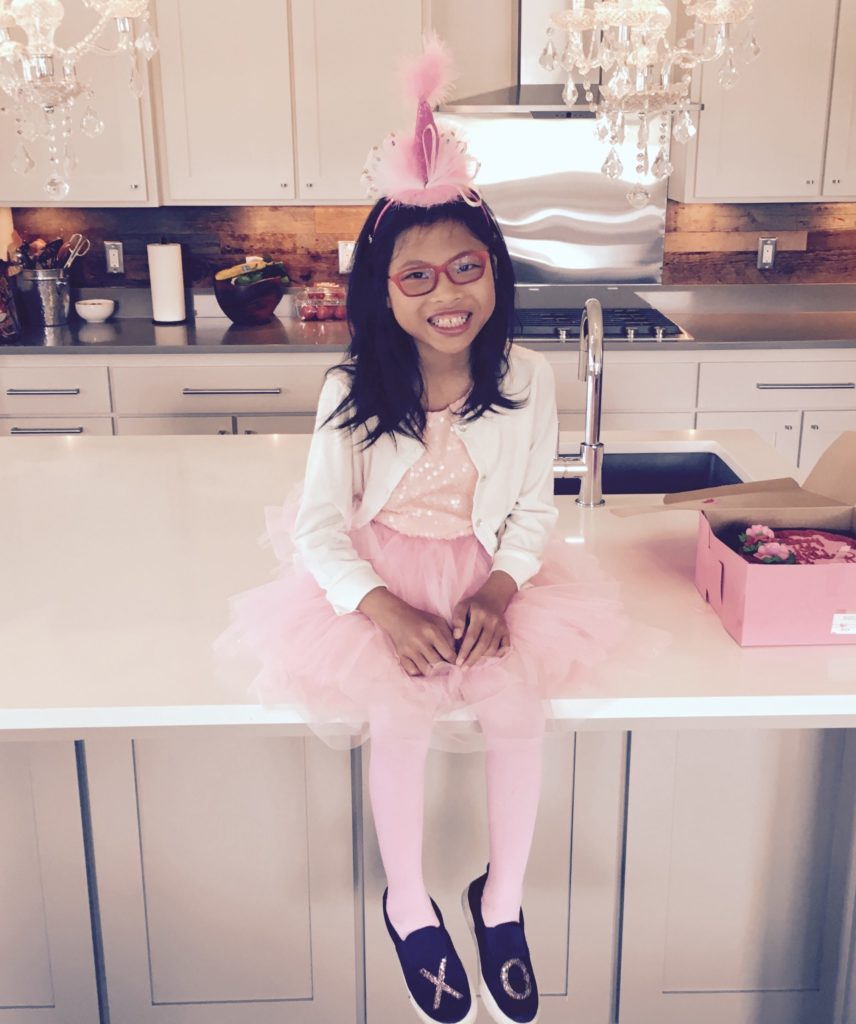
Of course, Noelle says, that was sometimes easier said than done.
“There were moments in the middle of kid behavior where I had to kind of mindfully handle the situation to the best of my ability,” she says, “and realize that she’s overcoming a lot and it may take longer than normal … but I looked at it like a privilege to hold her hand during the healing process.”
And gradually, as Vienna saw that even at her weakest, even at her angriest, Noelle and Brett would love her, she did begin to heal — and, to Noelle’s surprise, to return their love. She began to give hugs and kisses. One of the first things she said to her mom in English was “I love you.” Then one night, after she had been home a year, Vienna snuck into Brett and Noelle’s room to say something that they never expected to hear. “Thank you for adopting me,” she whispered.
Vienna has now been home for three years. She has a lot of spunk and personality, and a great sense of style, Noelle says. Although she couldn’t even read in her native Mandarin, she can now read and write in English. Even though she never attended school in China, she now attends a regular 7th grade class. She loves school, loves to socialize. And she has dreams for her life. She wants to be a nurse or a doctor and work with babies.
“It feels incredible,” Noelle says, “because you’re watching this child slowly transform in front of your eyes.”
“Every child has potential and if you can go into it with confidence and commitment to the goal of helping this child become part of your family, whatever that takes, healing can happen.”
Marissa Robello, Holt clinical social worker
When Marissa last saw Vienna, at a Holt picnic a year after she came home, she was a different child, she says. But she’s not surprised. As a clinical social worker who cautiously prepares parents for any outcome, Vienna’s transformation nevertheless reinforces everything she knows to be true about children with difficult histories.
“Every child has potential and if you can go into it with confidence and commitment to the goal of helping this child become part of your family, whatever that takes, healing can happen,” she says. “The commitment is a really important part of the equation.”
Love, Patience and Flexibility
Not long after Noelle and Brett adopted Vienna, they felt drawn to another waiting child — this time, a 14-year-old boy about to age out of eligibility for adoption. A year later, they adopted another 14-year-old — a girl from the same orphanage as Vienna. As unique individuals, each child went through a unique attachment process and transition home. But in many ways, both children needed the same combination of love, patience, flexibility and realistic expectations that allowed Vienna to adapt and thrive.
“In my opinion, Brett and Noelle were special because they were realistic and prepared, but not overly worried or looking for problems,” Marissa says. “They were open to the fact that they would be starting from square one with each child, that these kids had probably been through terrible experiences, and that each child’s path could — and certainly did — look a lot different.”
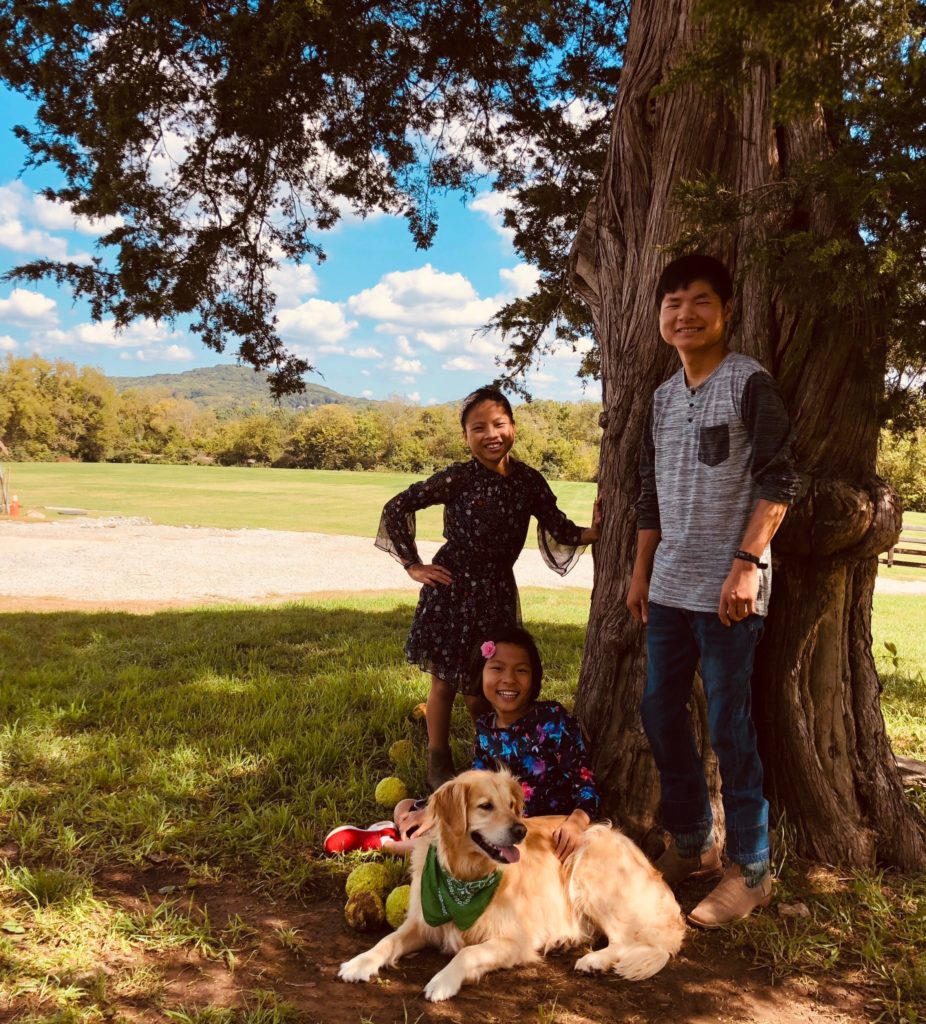
One thing that Marissa says made Noelle and Brett particularly well equipped to parent kids with difficult histories is the losses they experienced in their own lives, and the fact that they worked through them in healthy ways.
“There are lots of important family components like their support system, resources, willingness to ask for help … but when a parent has been through something tough and has truly healed and grown from it,” she says, “that experience of resilience is something that the parent can fall back on when facing future challenges — and they can model that for their child.”
Three years and the same number of adoptions later, Noelle and Brett have seen just how two parents with a rock-solid relationship, realistic expectations and a flexible outlook can help a child heal from even the worst history.
A sense of humor helps, Noelle says. As does letting go of what other people think.
But above all, if you’re planning to adopt a child with a difficult history, “Do it because you want to give the love and not have any expectations in return,” she says. “If that’s the perspective you go in with, you’ll be so extremely grateful — just for the abundance of healing and hope that you’re able to see in them.”
To learn more about parenting children with difficult histories, check out “The Connected Child” by Karyn Purvis, “Parenting the Hurt Child” by Gregory Keck and Regina Kupecky, and “Our Own: Adopting and Parenting the Older Child” by Trisha Maskew.
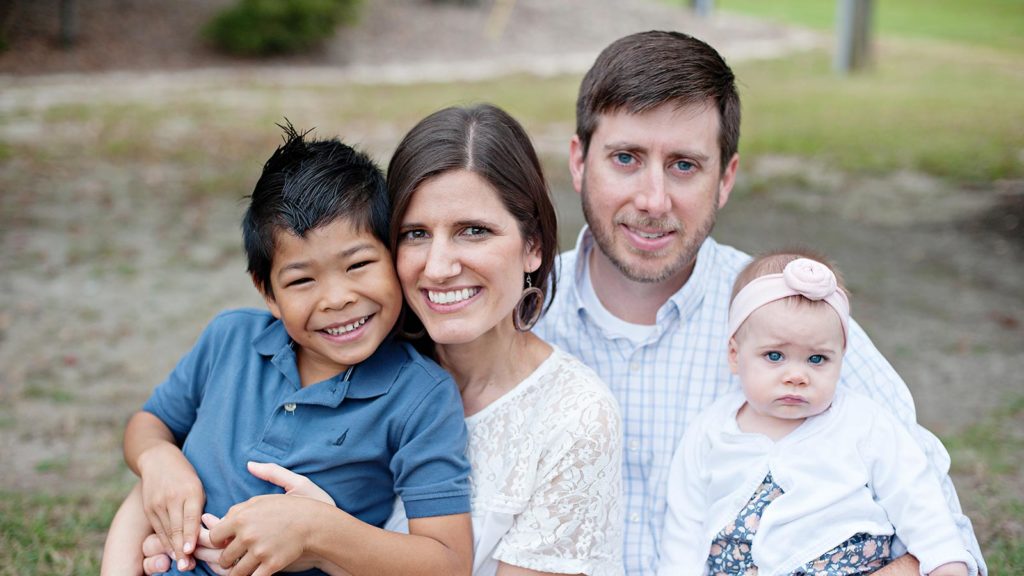
Older children are waiting for families!
Many children wait longer for a family simply because they are older in age. Could you be the right family to adopt an older child? Meet some of the children who are waiting!
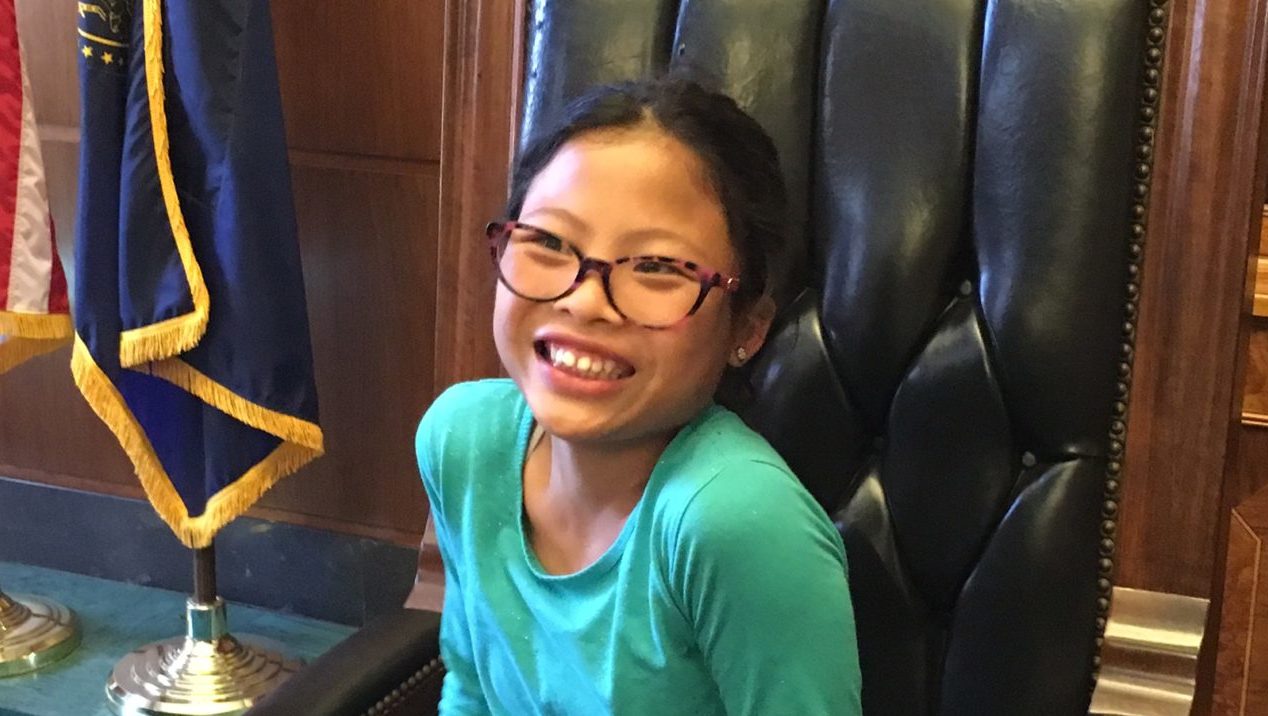
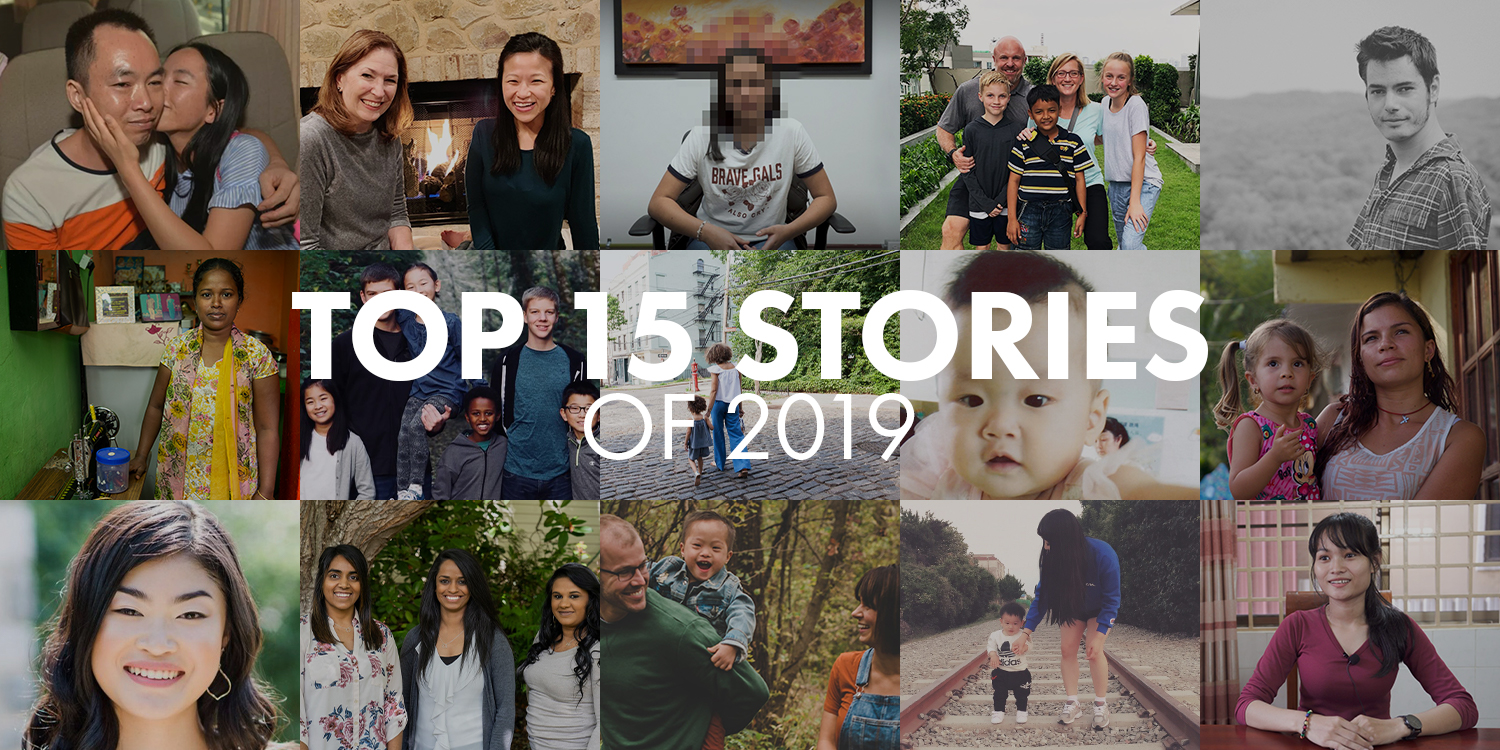

Thank you Robin for this wonderful article! So encouraging, thoughtful and transparent.
I and my wife were so deeply touched by this story. It seems strikingly similar to our own, only we are at the very beginning. Noelle sees things the same way we do I think.
Vienna has important similarities with our future daughter; things that Noelle had success with. We have some specific questions that we can not ask in a public forum. Is there a way my email address could be provided to Noelle?
Thank you so much for this!
-colin
Hello,
You and your husband sound amazing & your children are beautiful.
I was adopted by a mother who was the complete antithesis of you. Threatening to always send me back, reminding me I was not her “real” daughter.
I still at 54 have sadness but thru the support of friends and professional people I survived.
I wish all adoptive parents were like you & your husband.